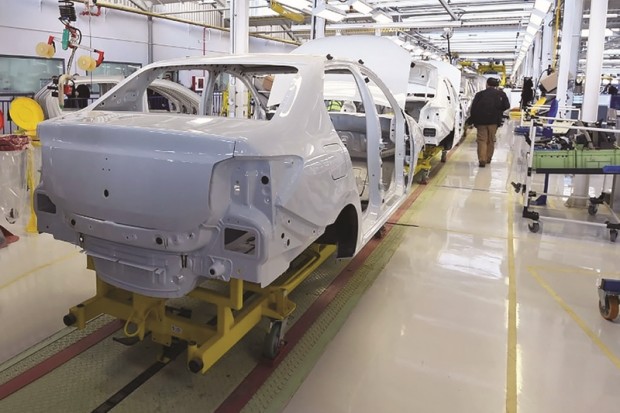
Industrias del automóvil y electrodomésticos en Argelia. Dos ejemplos de fracaso de políticas industriales.
20 marzo, 2021
Industries de l’automobile et de l’électroménager en Algérie. Deux exemples d’échec de la politique industrielle.
20 marzo, 2021Automotive and appliance industries in Algeria. Two examples of industrial policy failure.

The Algerian Minister of Industry, M. El-Hachemi Dja-boub, confirmed last 15/03/2021 that the closure of car assembly factories and the cessation of the importation of household appliance manufacturing components have led to the loss of 51,000 jobs.
Two clear examples of failure of the Algerian government’s industrial policies that end in a soundbusiness fiasco and monumental corruption scandal.
The Algerian «industry» of the automobile was born in 2014 forced by the Algerian government to cancel the import licences of cars in force, allowing only the import of «assembly kits», the well-known SKD-CKD, to be «assembled» in Algerian territory. As soon as the lack of industrial fabric in Algeria is known, and the consequent lack of the essential auxiliary industry, it is understood that the approach was at least risky.
The Algerian government thus forces the opening of RENAULT’s»factories» in Oran in 2014, followed by HYUNDAI in Tiaret (2016), VOLKSWAGEN in Relizane (2017), KIA, … The system is plunged into the scandal of overvalued import prices, fictitious assemblies and regulatory chaos, which leads to both shortages of vehicles in the domestic market, falling tax collection and an unsustainable cost to Algerian consumers.
In addition to this, the general restrictions and constraints on imports end up resulting in the fall in activity of the new «factories» and the staggered closure thereof, since 2019. A monumental corruption scandal follows, ending almost all of the operators prosecuted and convicted along with policy makers.
The case of the white line appliance «manufacturing» industry follows the same scheme. «Invited» to invest in the sector with the combined effect of prohibitions and aid, operators open local assembly chains that depend entirely on external supplies in the absence of a local auxiliary industry. The result is logically the same: scarcity, cost and corruption.
And let us hope that these examples, which have been joining many others for decades, will give rise to a correct situation analysis that will result in the changes that the increasingly delicate situation is demanding.
